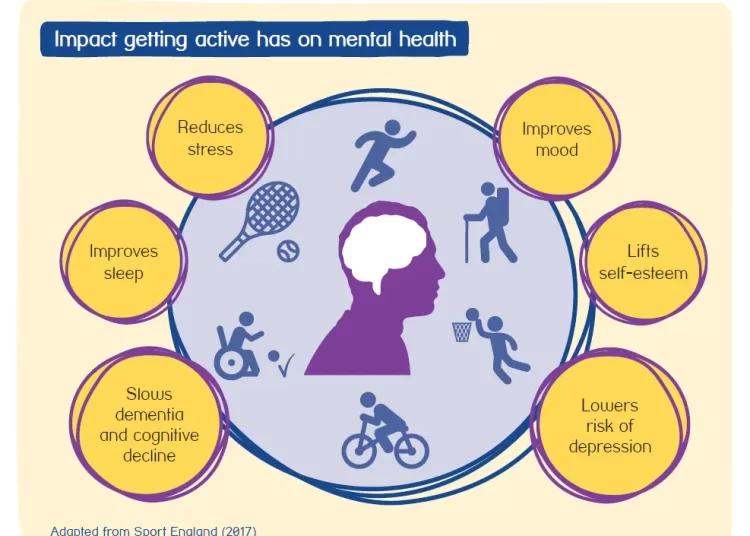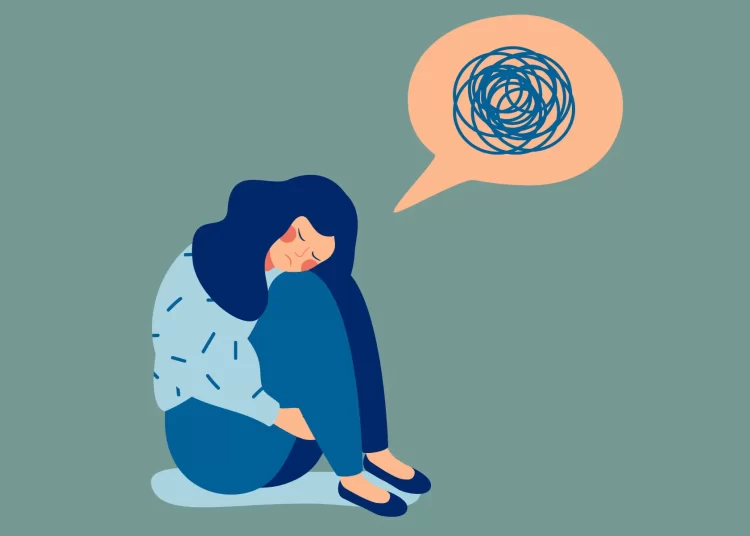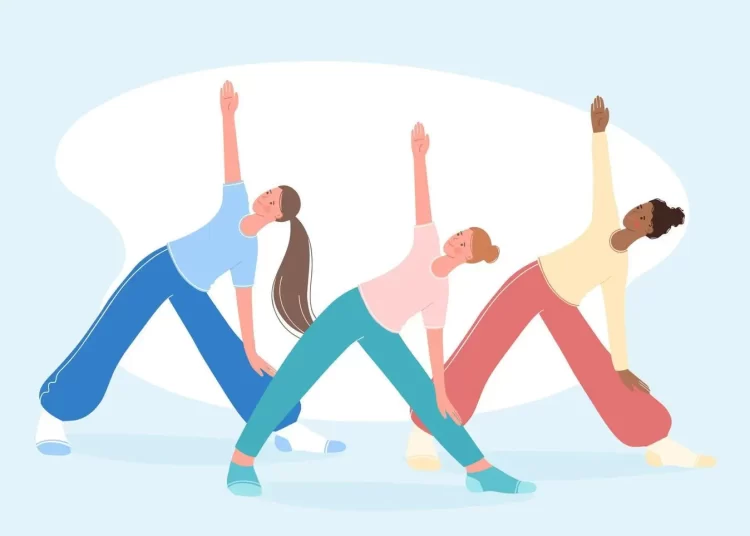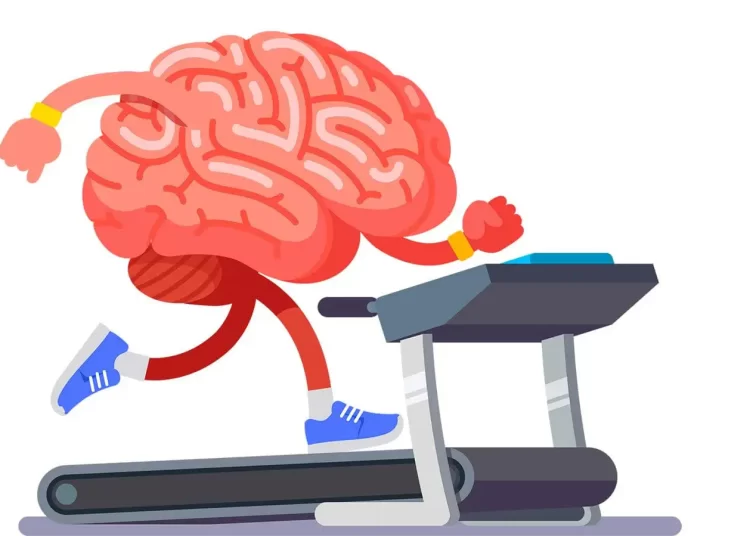This post is also available in:
 Tamil (தமிழ்)
Tamil (தமிழ்) ![]() Sinhala (සිංහල)
Sinhala (සිංහල)
Exercise is healthy for human beings, as you well know. In addition, it can help you manage with anxieties, stress, depression, and more. It may improve your mental state and better your sleep. In an age dominated by sedentary lifestyles and escalating stress levels, robust mental health has never been apparent. While the documented benefits of exercise for physical health are indisputable, its equally significant positive impact on mental well-being cannot be overstated. Engaging in regular physical activity has been demonstrated to exert profound effects on various aspects of mental health, presenting a natural and holistic approach to managing stress, anxiety, depression, and other mental health conditions.
1. Using the Benefits of Exercise for Stress and Anxiety Reduction.
Physical activity aids in reducing levels of the body’s stress hormones, including cortisol. Regular exercise fosters a more balanced and resilient stress response, rendering it an effective tool for managing chronic stress. Moreover, the repetitive and rhythmic nature of exercises such as running or cycling can induce a calming effect on the mind.

2. The Dual Benefits of Exercise and Improved Sleep Quality.
Insufficient sleep and poor sleep quality are closely associated with mental health issues. Exercise has been proven to regulate sleep patterns and enhance sleep quality. Regular physical activity assists in resetting the body’s circadian rhythm, fostering a more restful and restorative sleep.

3. Exposing the Mental Benefits of Exercise and the Release of Endorphins.
Exercise activates the release of endorphins, often termed the “feel-good” hormones. These chemicals interact with brain receptors, reducing the sensation of pain and fostering positive emotions. The ensuing euphoria acts as a powerful remedy for stress and anxiety, creating a profound sense of well-being. This natural process highlights the transformative impact of physical activity on mental health, offering a holistic approach to emotional resilience.

4. Exercise’s Impact on Mental Health and Enhanced Cognitive Function.
Exercise exerts a positive impact on cognitive function, encompassing improved memory, attention, and problem-solving skills. Increased blood flow to the brain and the release of neurotransmitters contribute to heightened cognitive performance. Regular physical activity has also been linked to a reduced risk of cognitive decline and neurodegenerative diseases.

5. The Benefits of Exercise and the Boost in Self-Esteem and Confidence.
Achieving fitness goals, regardless of scale, enhances self-worth and confidence. Regular exercise yields physical improvements that positively impact body image, fostering a more optimistic self-perception. This transformative process not only nurtures a healthier body but also cultivates a mindset of self-empowerment, reinforcing the invaluable connection between physical activity and an improved sense of self.

6. The Benefits of Exercise and Social Support.
Various forms of exercise provide opportunities for social interaction, whether by joining a sports team, attending group fitness classes, or simply going for a walk with a friend. Social support is a critical element in maintaining good mental health and engaging in exercise with others can establish a sense of community and belonging.

7. Using the Benefits of Exercise and the Mind-Body Connection.
Activities such as yoga and tai chi emphasize the connection between the mind and body. These practices not only enhance physical flexibility and strength but also promote mindfulness and relaxation, alleviating symptoms of anxiety and depression.

Incorporating regular exercise into one’s routine is a potent and accessible strategy for maintaining robust mental health. Whether it involves a brisk walk, a yoga session, or a high-intensity workout, the diverse mental health benefits of exercise are well-supported by scientific research. By integrating physical activity consistently into daily life, individuals can elevate their overall well-being and fortify resilience against the challenges of modern living. Regular exercise can have a profoundly positive impact on depression, and anxiety. It also relieves stress, improves memory, helps you sleep better, and boosts your overall mood. And you don’t have to be a fitness fanatic to reap the benefits. Research indicates that modest amounts of exercise can make a real difference. No matter your age or fitness level, you can learn to use exercise as a powerful tool to deal with mental health problems, improve your energy and outlook, and get more out of life.

























Discussion about this post